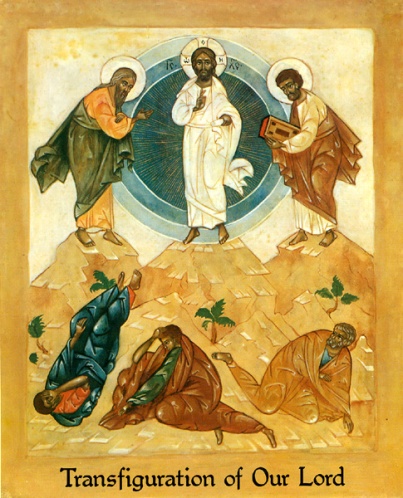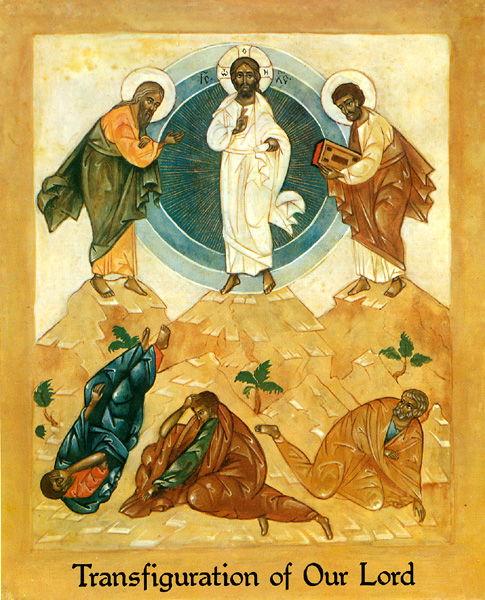Happy Monday! Every Monday I share a few tidbits, nuggets, or ideas for incorporating some stewardship themes in your preaching. This week’s stewardship nuggets based on the appointed readings by the Revised Common Lectionary and Narrative Lectionary are as follows:
Sunday February 11, 2018: Revised Common Lectionary- The Transfiguration of Our Lord
First Lesson: 2 Kings 2:1-12
Psalm 50:1-6
Second Lesson: 2 Corinthians 4:3-6
Gospel of Mark 9:2-9
This week we celebrate God’s light in the world. This week, we remember the story of Jesus being transfigured on the mountaintop. In light of an experience like this, it would be natural to want to enjoy and be in this moment for as long as possible. So, Peter’s famous idea is understandable, “Rabbi, it is good for us to be here; let us make three dwellings, one for you, one for Moses, and one for Elijah” (Mark 9:5, NRSV).

About a month ago, this time after Epiphany began with the story of Jesus’ baptism and God’s declaration that this is God’s son, the Beloved. This week, this time is book-ended by another decree from God about God’s own son. The disciples were likely terrified hearing the words, “This is my Son, the Beloved; listen to him!” (Mark 9:7, NRSV)
With those words, the experience of transcendence climaxes and concludes. And then it’s time to come back down from the mountain. And, “As they were coming down the mountain, he ordered them to tell no one about what they had seen, until after the Son of Man had risen from the dead” (Mark 9:9, NRSV).
As I think about the story and experience of the Transfiguration, a number of potential stewardship questions come to mind. For instance, where have you felt God’s presence, or felt closer to God the divine? What are the great memories, moments, or mountaintop experiences of your life? What were those times like, and how was it to have to come down the mountain from them and return to daily life?
Pondering these questions might make for a rich reflection about our witness to God’s work in the world, as well as our response to God’s work, and our participation in God’s mission. As followers of Christ, we gather together and witness the transfigured, but then we are sent out to the valley below the mountain, or more accurately the entire world- bearing hope, peace, and light into the broken and sometimes dark, yet beautiful and beloved world created by God.
If one of those questions doesn’t get your brain spinning, then in terms of stewardship, I might think about the 2 Corinthians passage this week. I really wish the verse about “clay jars” were included in this lesson, but for Transfiguration, I can understand why the passage was truncated this way. That said, this passage sums up God’s work for us nicely.
“For we do not proclaim ourselves; we proclaim Jesus Christ as Lord and ourselves as your slaves for Jesus’ sake. For it is the God who said, ‘Let light shine out of darkness,’ who has shone in our hearts to give the light of the knowledge of the glory of God in the face of Jesus Christ” (2 Corinthians 4:5-6, NRSV).
It begs the question, how do we proclaim? In what ways is God’s light shining out of darkness today? Perhaps to us? Perhaps through us?
Whatever questions might guide you or challenge you this week, may God’s light be with you, and give you hope.
Sunday February 11, 2018: Narrative Lectionary- The Transfiguration of Our Lord
Narrative Theme for the Day: The Man Born Blind (Year 4, Week 23)
Focus Passages: John 9:1-41
Psalm 27:1-4
Sometimes the narrative lectionary’s appointed passages don’t seem to quite line up in expected ways on traditional liturgical festivals of the church. Even so, they often offer some new perspective for the day. So perhaps the story about “The Man Born Blind,” is a perfect story for the Transfiguration of Our Lord?
In this story, Jesus declares, “As long as I am in the world, I am the light of the world” (John 9:5, NRSV). As he declares this, he meets a blind man and instructs him on what to do. The man gains sight which he has never had, and this perplexes many, and terrifies or at least agitates those in religious authority.
The man is questioned multiple times. It’s kind of like how in our society we question those who might be different than us- different perspectives, backgrounds, ethnicities, etc. “This cannot be so. Such and such couldn’t know that,” or “couldn’t be trusted,” or “couldn’t be worth of that….” Given the state of society and the world around us, this might just be a timely message to preach the depths of God’s love for all, and especially those who are marginalized, “othered,” and oppressed, by us.
To his questioners, the man says, “I do not know whether he is a sinner. One thing I do know, that though I was blind, now I see” (John 9:25, NRSV).
Later the man who was born blind, ends up seeming to preach to those in authority in answering their repeated questions. “The man answered, ‘Here is an astonishing thing! You do not know where he comes from, and yet he opened my eyes. We know God does not listen to sinners, but he does listen to one who worships him and obeys his will. Never since the world began has it been heard that anyone opened the eyes of a person born blind. If this man were not from God, he could do nothing'” (John 9:30-33, NRSV).
Of course those in power scoff at and reject this. But it’s yet further proof that the gospel’s message comes from and through anyone, and often God’s Word is shared through the least expected voices. God doesn’t just work through or speak through a select few people. And this challenges us in authority who have spent years in seminary learning, taking on student loans, etc. Perhaps it’s an invitation to us today, to admit that we don’t hold some special power, but are rather people entrusted with the opportunity to share God’s story, and to point to God’s on-going story around us, much like this man in today’s story does.
More broadly in terms of stewardship this week, you might want to reflect on the questions: How does God open our eyes? How does God change us? And how do we see and respond to what we see, and the gift of new sight and new life in Christ?
Toward the end of today’s story, the man and Jesus meet again. “Jesus heard that they had driven him out, and when he found him, he said, ‘Do you believe in the Son of Man?’ He answered, ‘And who is he, sir? Tell me, so that I may believe in him.’ Jesus said to him, ‘You have seen him, and the one speaking with you is he.’ He said, ‘Lord, I believe.’ And he worshiped him” (John 9:35-38, NRSV).
This man’s response to what God has done is belief, joy, and to tell about the experience to those who question him. May we be so bold in our witness and sharing God’s story and promises for us with others.
Image Credit: Transfiguration
